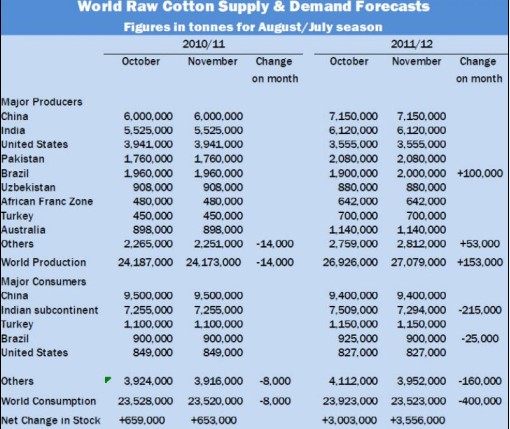|
The Rupp Report of last week, " Empty Shelves In Western Stores?" provoked some feedback, which is always welcome. The feedback came from machinery manufacturers who say the recovery is making good progress and orders are increasing. That is good news. However, there are some clouds in the sky.
Outsourcing
Today, virtually all globally active textile machinery suppliers are not producing 100 percent of their products at their home bases. A company's own foreign production sites also are considered to be home bases. In times of trouble, many people and company executives are losing ground and starting to adjust their own company philosophies. Some years ago, even the toughest family-owned companies reversed their credo that "we never outsource our production; we want to have everything in our own hands."
Since outsourcing came so much in fashion in the last years, one of my favorite questions in discussions with top executives has been the following: What is modern management? The answers have been quite different, and I have always replied: To adjust or balance the ups and downs of the business development. And to adjust the ups and downs means to reduce cost at any price -- such as lean production, buying less, smaller contracts, cheaper purchasing, reducing personnel and so forth. The list is virtually endless, and the results are obvious.
Shortage Of Supply
By squeezing your subcontractors, they reduced their output accordingly. And now, when the markets are moving up, another bottleneck as described last week occurs. The results are the ultimate nightmare for every salesman: the order is here but the producer can't deliver in time, and the customer is angry.
Regular readers of the Rupp Report know that sometimes I refer to my dad, who was the best teacher in life for me: He always said if you are working with a subcontractor, treat him like your best friend. The reason for that is obvious: He's not only dependent on your company with your orders, but you also depend on him for his prompt and quality deliveries. And the end of the story makes common sense: Virtually all Western companies, big or small, moved their production to Asia, killing their Western suppliers with their price.
No Choice?
One may say, okay, but we must survive, and all the other very well-known excuses. And we are short of money, and so forth and so on. The Rupp Report also has asked many times in the past two years, did you do your homework? Did you really do it? Sometimes today, when we receive press releases or feedback, it seems the biggest problems in the upswing are the delivery times. Is this funny or a tragedy? Or even a comedy? Apart from being in friendly and fair relations with your suppliers, there is another way of doing your homework and being ready for the upswing.
There Is Another Choice
Most people know the Switzerland-based Swatch Group. They not only are the inventors of the Swatch watch, which virtually saved the watch industry in Switzerland with its innovative concept, but they also own famous wristwatch brands like Omega, Tissot, Longines, Breguet and many more. A few weeks ago, the Swatch Group presented its results of the first half year 2010: In spite of the recent crisis, the turnover reached 3,031 million Swiss francs, an increase of 22.2 percent compared to 2,480 million Swiss francs in 2009. The operating profit soared by 81.4 percent from 345 million Swiss francs in 2009 up to 626 million Swiss francs, and the net profit jumped by 54.5 percent to 465 million Swiss francs.
Do It The Other Way Around
How is this possible in these times of trouble? When U.S. business dropped in 2008, and other companies pulled out of the market, the Swatch Group did the opposite and expanded its business with 50 to 60 new flagship stores all over the country. Nick Hayek, boss of the Swatch Group, explained the success in this way: "Two shoes salesmen are walking through the desert. One of them turned back immediately saying here is no business at all. The other one saw all the barefoot people and said this is a big market and started selling the shoes."
Stay With Your Strategy
Hayek also said Swatch didn't change its strategy at all. Even in Russia the group opened up many new stores. It was the perfect time for Hayek to open new stores that had lower rental costs and better sales locations, and to replace old dealerships with new ones. Hayek said furthermore that in 2008, when other stock listed companies fired personnel, the Swatch Group would have been able to hire 1,000 people according to the order books. But they didn't and now are ready for the upswing.
Trust Yourself
Surprisingly, the Swatch Group is increasing its production capacities in Switzerland, one of the most expensive countries in the world in terms of labor costs. But more important for the group is the fact that it has the whole production process in-house to control quality and, even more important, to monitor the working process to further streamline and reduce production costs. Many banks said in 2008 that Hayek would fail with this strategy. However, he didn't fail, and didn't change his strategy. And -- again -- the moral of that story is don't trust your bankers.
|




